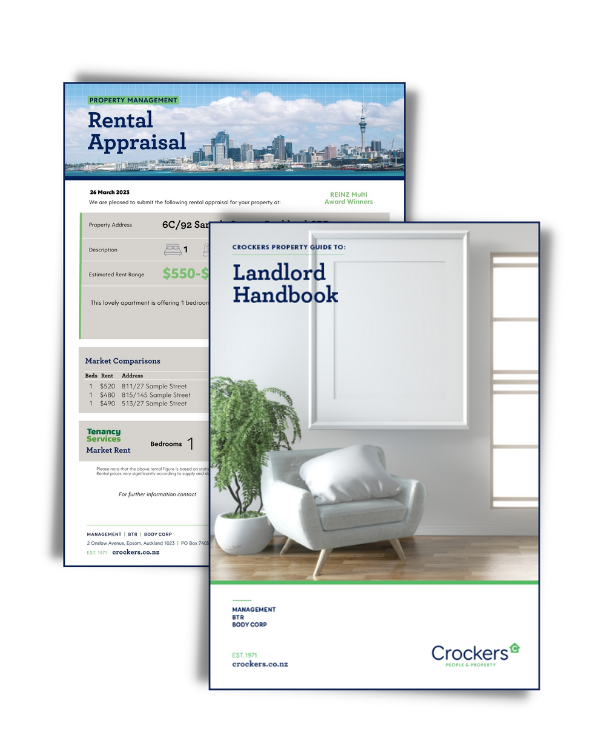Are you a landlord, property investor, or tenant in the Auckland region of New Zealand? Look no further because we have created the ultimate guide to getting a rental appraisal in Auckland. Whether you’re a seasoned property owner or just starting out, this comprehensive guide will provide you with all the information you need to understand the rental appraisal process in Auckland. From understanding the factors that affect rental prices to finding a reliable property management company, we’ve got you covered. So, get ready to dive into this ultimate guide and make informed decisions when it comes to renting out your property in Auckland.

What is a Rental Appraisal?
Definition of a rental appraisal
A rental appraisal is the process of evaluating and determining the rental value of a property. It involves assessing various factors such as location, amenities, property size, condition, and market demand to determine an appropriate rental price range.
Purpose of a rental appraisal
The primary purpose of a rental appraisal is to provide landlords, property investors, and tenants with an accurate assessment of the current market value of a rental property. It helps landlords set an appropriate rental price that attracts reliable tenants while maximizing their rental income. For tenants, a rental appraisal provides valuable information about the affordability of a rental property. Moreover, property investors can utilize rental appraisals to make informed decisions about buying or selling rental properties.
Why Do You Need a Rental Appraisal?
Importance of rental appraisals for landlords
For landlords, rental appraisals are of utmost importance. They enable landlords to set a rental price that is competitive yet profitable. Pricing a rental property too high may result in longer vacancy periods and potential loss of income, while pricing it too low may undervalue the property and minimize rental income. An accurate rental appraisal helps landlords strike a balance and maximize their return on investment.
Benefits of a rental appraisal for tenants
Tenants can benefit from rental appraisals as well. By understanding the rental value of a property, tenants can determine whether the property is within their budget and make informed decisions before signing a lease. Rental appraisals can also help tenants negotiate rental prices with landlords, ensuring they are paying a fair price for the property.
Usefulness of rental appraisals for property investors
For property investors, rental appraisals provide crucial information for analyzing potential investments. By assessing the rental market and local trends, property investors can make informed decisions about purchasing or divesting rental properties. Rental appraisals help investors identify properties with high rental yields and return on investment, ensuring profitability and long-term success.
How to Prepare for a Rental Appraisal
Gather relevant property information
Before scheduling a rental appraisal, gather all relevant information about your rental property. This includes details about the property’s size, number of bedrooms and bathrooms, layout, and any additional features or services it may offer. Providing accurate and detailed information will help the appraiser make an accurate assessment.
Research comparable rental properties
To get a better understanding of the rental market, research comparable rental properties in your area. Look for properties with similar size, amenities, and location. This will give you a benchmark to compare your property’s rental value and ensure a more accurate rental appraisal.
Consider recent property upgrades or renovations
If you have made any recent upgrades or renovations to your rental property, make sure to mention them during the appraisal. Upgrades and renovations can significantly impact the rental value of a property and should be taken into consideration during the appraisal process.
Clean and declutter your rental property
Presenting a clean and decluttered rental property during the appraisal is essential. A well-maintained property creates a positive impression and can potentially increase its rental value. Ensure that the property is clean, well-organized, and free from any clutter that may distract or detract from its appeal.
Choosing the Right Rental Appraisal Service
Factors to consider when selecting a rental appraisal service
When selecting a rental appraisal service, there are several factors to consider. Reputation and reliability should be at the top of the list. Look for a service with a good track record and positive customer reviews. It’s also important to consider the level of professionalism, responsiveness, and expertise of the appraisers.
Qualifications and experience of appraisers
Ensure that the appraisers conducting the rental appraisal have the necessary qualifications and experience. They should have a solid understanding of the local rental market and the ability to accurately assess the value of rental properties. Experienced appraisers bring expertise and insights that can greatly benefit landlords, tenants, and property investors.
Types of appraisal methods used
Different appraisal services may utilize various methods to determine rental value. Some common methods include the market approach, income approach, and cost approach. Research and understand the different appraisal methods to ensure that the chosen service uses a comprehensive and reliable approach.
Availability of online or digital appraisal options
Consider whether the rental appraisal service offers online or digital appraisal options. Online appraisals can be a convenient and efficient way to assess rental property value, particularly in situations where an in-person visit may not be possible or necessary. Online appraisals ensure accessibility and flexibility for both landlords and tenants.

The Rental Appraisal Process
Booking an appointment with the appraiser
Once you have chosen a rental appraisal service, the first step is to book an appointment with the appraiser. Specify your availability and provide the necessary property details to ensure a smooth scheduling process.
Site visit and inspection of the rental property
During the rental appraisal, the appraiser will visit and inspect the rental property. They will assess the property’s condition, layout, amenities, and overall appeal. It is important to be present during the inspection to answer any questions the appraiser may have and provide additional information or clarifications.
Discussion of rental market conditions and trends
After the inspection, the appraiser will discuss the current rental market conditions and trends with you. They will provide insights into market demand, rental price fluctuations, and any other relevant factors that may impact your property’s rental value.
Presentation of the rental appraisal report
Following the appraisal, the appraiser will provide you with a rental appraisal report. The report will include an assessment of your rental property’s value, a comparison with similar properties in the market, and recommendations for a suitable rental price range. Take the time to carefully review the report and consider its recommendations before making any rental pricing decisions.
Understanding the Rental Appraisal Report
Components of a rental appraisal report
A rental appraisal report typically includes several components. These may include an executive summary, property details, comparable property analysis, market overview, rental price recommendations, and any additional observations or recommendations made by the appraiser.
Assessment of rental property value
The assessment of the rental property value is a crucial section of the report. This is where the appraiser provides their professional opinion on the rental value of your property. The assessment is based on various factors, including location, amenities, property size, condition, and market demand.
Comparison with similar properties in the market
The report will also include a comparison of your property with similar properties in the market. This comparison helps to provide an understanding of how your property fares against the competition in terms of rental pricing. The appraiser will review the rental prices of comparable properties and provide insights on how your property compares.
Recommendations for rental price range
Based on the assessment and comparison, the appraiser will provide recommendations for a suitable rental price range for your property. This range takes into account factors such as market demand, rental price expectations, and the property’s unique features. Consider these recommendations carefully when determining the rental price for your property.

Factors Affecting Rental Property Value in Auckland
Location and proximity to amenities
Location plays a significant role in determining the value of a rental property in Auckland. Properties in desirable neighborhoods with accessibility to amenities such as schools, parks, shopping centers, and public transportation tend to command higher rental prices.
Size and layout of the property
The size and layout of the rental property also impact its value. Larger properties with more bedrooms and bathrooms generally have a higher rental value. Additionally, well-designed layouts that maximize space and functionality are often more attractive to tenants.
Condition and age of the rental property
The condition and age of the rental property are important factors that can affect its value. Properties that are well-maintained and in good condition are more likely to attract tenants and command higher rental prices. Older properties may require more frequent maintenance and updates, which can impact their rental value.
Market demand and competition
The level of market demand and competition for rental properties in Auckland can influence rental property values. When there is high demand and limited supply, rental prices tend to increase. Conversely, an oversupply of rental properties can lead to decreased rental prices.
Inclusion of additional features or services
Rental properties that offer additional features or services such as parking spaces, balconies, swimming pools, gyms, or security systems may have a higher rental value. These added amenities can enhance the appeal of the property and attract tenants willing to pay a premium for such services.
Potential Rental Yield and ROI
Calculating rental yield for your property
Rental yield is a key metric for assessing the profitability of a rental property. It is calculated by dividing the annual rental income by the property’s value and multiplying it by 100. This percentage represents the potential return on investment generated by the rental income.
Understanding return on investment (ROI)
Return on investment (ROI) is a broader measure that considers both the rental income and the property’s value. ROI factors in the initial cost of purchasing the property and the ongoing expenses associated with maintaining and managing it. It provides a comprehensive view of the financial benefits and potential drawbacks of the investment.
Factors that impact rental yield and ROI
Several factors can affect rental yield and ROI. These include rental prices, property expenses (such as property taxes, insurance, and maintenance costs), vacancy rates, and financing arrangements. By considering these factors, landlords and property investors can make informed decisions to maximize their rental income and return on investment.
Using the Rental Appraisal to Set the Right Rent
Determining an appropriate rental price
The rental appraisal report provides valuable insights that help landlords determine an appropriate rental price. Consider the assessment of the property’s value, the comparison with similar properties, and the appraiser’s recommendations when setting the rent. Striking a balance between maximizing rental income and attracting reliable tenants is essential.
Adjusting rent based on market conditions
It is important to regularly assess market conditions and adjust rent accordingly. Rental prices can fluctuate due to changes in supply and demand, economic factors, and local market trends. Conduct periodic rental appraisals to ensure that your rental property remains competitive and aligned with the market.
Consideration of tenant preferences and affordability
When setting the rent, it is crucial to consider tenant preferences and affordability. Setting a rental price that is too high may deter potential tenants, while setting it too low may undervalue the property. Take into account the amenities, location, and condition of the property, as well as the target tenant demographic to strike the right balance.
Regular review of rental prices
Rent should not be an inflexible figure. It is important to regularly review and assess the rental prices of comparable properties in your area. Stay informed about market trends and adjust the rent accordingly to remain competitive and maximize rental income.
Challenges and Pitfalls of Rental Appraisals
Inaccurate or biased rental appraisals
One potential challenge with rental appraisals is the risk of inaccurate or biased assessments. It is crucial to choose a reputable appraisal service with experienced appraisers to minimize this risk. Conduct thorough research, read reviews, and seek recommendations to ensure the credibility and reliability of the appraisal service.
Potential conflicts of interest
Conflicts of interest can arise when the appraiser has a vested interest in the outcome of the rental appraisal. For example, if the appraiser is associated with a particular property management company or has a personal relationship with the landlord. It is essential to choose an appraiser who maintains independence and objectivity.
Impact of seasonal rental fluctuations
Rental markets can experience seasonal fluctuations, which can impact the accuracy of rental appraisals. For example, rental demand may increase during certain times of the year (e.g., summer) and decrease during others. Landlords should be aware of these fluctuations and consider them when setting rental prices.
Changing rental market conditions
Rental markets are not static and can experience shifts due to various factors such as changes in local economy, population demographics, or government policies. It is important to regularly monitor market conditions and stay updated on any changes that may affect the rental value of your property.
In conclusion, a rental appraisal is a valuable tool for landlords, tenants, and property investors in Auckland. By understanding the rental value of a property, stakeholders can make informed decisions on setting rental prices, negotiating leases, and assessing investment opportunities. Through careful preparation, selecting the right appraisal service, and regular review of rental prices, landlords can maximize their rental income and minimize potential pitfalls. Tenants can benefit from rental appraisals by ensuring affordability and fair renting options. Ultimately, rental appraisals contribute to a healthy and vibrant rental market in Auckland.





